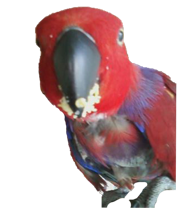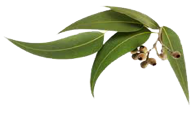When it comes to pellets and the Eclectus there is always strong debate and controversy. We either love them or hate them. Pellets used to be known to cause many behavioural and health problems in the Eclectus and people today still seem to believe they still do. Much has been studied over the years and changed to suit the species parrot when it comes to any pellet. You can now buy 100% natural, organic species specific pellets so, they have certainly come a long way to what they used to be.
The previous pellet ingredient problems were said to be red dye, excessive amounts of vitamins and minerals and especially excessive amounts of vitamin D3. These caused many problems with Eclectus parrots such as screaming, plucking and aggression and more but one of the main problems noted was toe tapping. Today you can now buy pellets that have the correct amount of vitamins and minerals for the Eclectus so there is a far less risk of your Eclectus developing any pellet related health issues.
There are still some Eclectus parrots that, no matter what pellets they use or how natural they are, still end up with some problems while eating pellets. This is more of an individual sensitivity and issue than it is a species related issue. Although Eclectus parrots are generally a hardy bird, as a species they’re a little more sensitive to diets than other species of parrot and some individuals appear to be even more sensitive to certain foods. If an Eclectus is sensitive to even the best pellets on the market then it's possible they’re sensitive to other foods in their diet as well, no matter how healthy that food may be.





